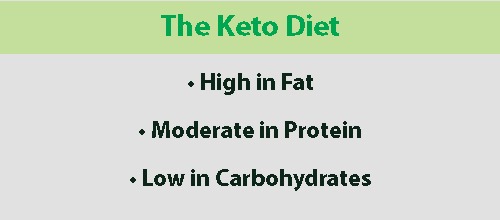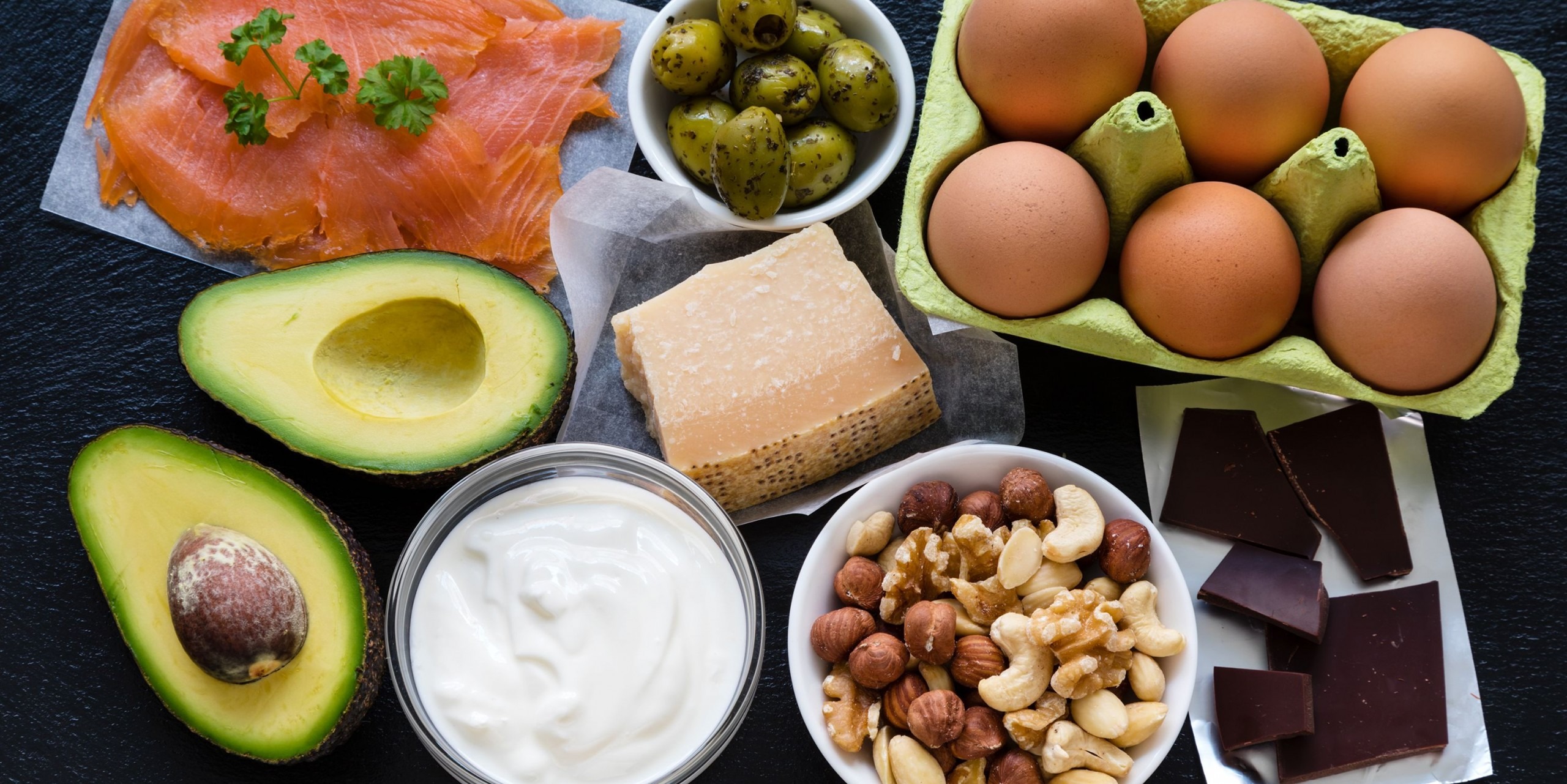If you are interested in losing weight, undoubtedly you have heard the chatter about the Keto Diet. ‘Keto’ is short for Ketogenic, the metabolic state where your body ‘burns fat’, which is what everybody who is trying to lose weight wants. The Keto Diet is the latest craze in dieting and because of this, and the reach of social media and the internet, there is an abundance of ‘information’ available to those who seek it. While the Keto Diet is NOT entirely ‘Fake News’ (i.e. you can lose weight on it), like many fad diets, the devil is in the details. Before we jump on yet another ‘diet’ bandwagon, it is in our best interest to become more familiar with the details, specifically the possible health risks as well as its potential to help us lose weight.
 The Keto Diet was initially made famous by hot-selling books, popular celebrities, personal trainers and word-of-mouth about how it can help alleviate various ailments. Many say it can lead to weight loss, help with Type 2 diabetes and improve blood sugar levels. Although you may hear the praises of this fad diet, we encourage our readers to do their homework and learn about the potential dangers associated with extreme diet trends such as Keto.
The Keto Diet was initially made famous by hot-selling books, popular celebrities, personal trainers and word-of-mouth about how it can help alleviate various ailments. Many say it can lead to weight loss, help with Type 2 diabetes and improve blood sugar levels. Although you may hear the praises of this fad diet, we encourage our readers to do their homework and learn about the potential dangers associated with extreme diet trends such as Keto.
So, what exactly is the Keto Diet? Is it safe and will it be around or fade away like many fad diets?
What is the Keto Diet?
By definition a Keto Diet is one that promotes weight loss by targeting the breakdown of fat in the body. It is very similar to the Atkins Diet in that there is a dramatic reduction in carbohydrate intake. Although there are many variations of the Keto Diet, the main differences between it and the Atkins Diet is that the Keto Diet emphasizes eating more fatty foods and a moderate amount of protein while the Atkins Diet allows unlimited protein consumption and the fat that is in the protein. The Modified Atkins plan later allows the addition of some carbohydrates but Keto Diet does not.

How does the Keto Diet work?
In theory, the Keto Diet works by avoiding foods that turn off fat burning (i.e. high glycemic carbs) and substitutes fatty foods in their place. Therefore, on a Keto Diet, one must NOT eat breads, grains, crackers, sugar, juices or sweetened drinks, sweetened yogurts, and starchy foods, including starchy vegetables. A Keto Diet emphasizes eating more fatty foods like eggs, nuts, meat proteins and other foods that are high in fats and have moderate amounts of protein. After beginning a Keto Diet, the body typically takes 3 to 4 days to start to go into ketosis. Many feel a bit sluggish as the body uses up its carbohydrate reserves and glycogen, and begins to burn fat. An undesirable consequence, however, is that the body also breaks down muscle for energy, as well as fat. This process is known to help people who are overweight quickly shed pounds. The Keto Diet trend is a temporary routine but not a sustainable lifestyle and, therefore, the weight, like with other fad diets, comes back.
Is the Keto Diet safe?
 As with most ‘diets’, the “success stories” (or anecdotes) are what most hear via the press and social media, often including testimonials given by celebrities, as opposed to certified healthcare professionals who rely on comprehensive medical evidence to make their recommendations.
As with most ‘diets’, the “success stories” (or anecdotes) are what most hear via the press and social media, often including testimonials given by celebrities, as opposed to certified healthcare professionals who rely on comprehensive medical evidence to make their recommendations.
The truth is that the Keto Diet can indeed help some people temporarily lose weight, and lower blood sugar and insulin levels, but is the Keto Diet safe? The Keto Diet has been shown to cause metabolic acidosis in certain people, especially in diabetics, and can lead to multi-organ failure and death. It is thought to be associated with an increased risk of cardiovascular disease. As with many diets, there is an increased risk of gallbladder disease, kidney stones, gout, low blood pressure and nutrient deficiency. Many people on a Keto Diet experience headaches, dizziness, constipation, loss of energy, stomach aches and vomiting.
Net Gain in Total Body Fat on a Keto Diet
Another widely undisclosed fact about the Keto Diet is that, even though fat burning is increased, over time fat consumption generally increases too and tends to overtake the body’s ability to burn it, so people actually tend to gain body fat in the long run rather than lose it. Many report weigh gain over time, after being on the Keto Diet.
What are the alternatives?
From our ongoing research at CardioMender, MD, we have found that short term quick- fix fad diets, such as the Keto Diet, are not recommended for sustained weight loss. It is best to consider safe, evidenced-based weight loss solutions associated with realistic sustainable lifestyle changes. We advised that, if you are considering going on a ‘diet’, first consult with your healthcare professional. While friends and family may sing the praises of their diet-of-the-week, it’s usually best to seek advice from healthcare professionals with proven results, year after year. Remember, safety first: the latest gimmick may at first glance look appealing but may turn out to be the devil in disguise.
For inspiration and answers to questions you may have about leading a healthy lifestyle, and different types of supplements, read previous blogs by CardioMender, MD Weight Loss Specialists at www.cardiomenderweightloss.com/category/weight-loss-articles/.
References:
https://nutritionfacts.org/topics/keto-diet/ (Nutrition Facts: Keto Diet)
https://nutritionfacts.org/video/are-keto-diets-safe/ (Nutrition Facts: Are Keto Diets Safe?)
https://nutritionfacts.org/video/keto-diet-results-for-weight-loss/ (Nutrition Facts: Keto Diet Results For Weight Loss)
https://nutritionfacts.org/video/keto-diet-theory-put-to-the-test/ (Nutrition Facts: Keto Diet Theory Put To The Test)
https://nutritionfacts.org/video/is-weight-loss-on-ketosis-sustainable/ (Nutrition Facts: Is Weight Loss On Ketosis Sustainable?)
https://www.webmd.com/diet/ss/slideshow-ketogenic-diet (WebMD: What’s a Ketogenic diet?)
https://www.nytimes.com/2019/08/20/well/eat/the-keto-diet-is-popular-but-is-it-good-for-you.html (NYTimes: The Keto Diet Is Popular, but is it good for you?)
https://www.everydayhealth.com/ketogenic-diet/diet/burning-questions-about-keto-diet-answered/ (Everyday Health: Answers to 15 Burning Questions About the Keto Diet)
https://www.heart.org/en/healthy-living/healthy-eating/eat-smart/fats/saturated-fats (American Heart Association: Saturated Fats)
https://www.health.com/weight-loss/keto-diet-side-effects (Health: 7 dangers of going keto)
https://www.healthline.com/nutrition/ketogenic-diet-101#weight-loss
https://health.usnews.com/wellness/food/articles/keto-vs-atkins
https://www.uchicagomedicine.org/forefront/health-and-wellness-articles/ketogenic-diet-what-are-the-risks






